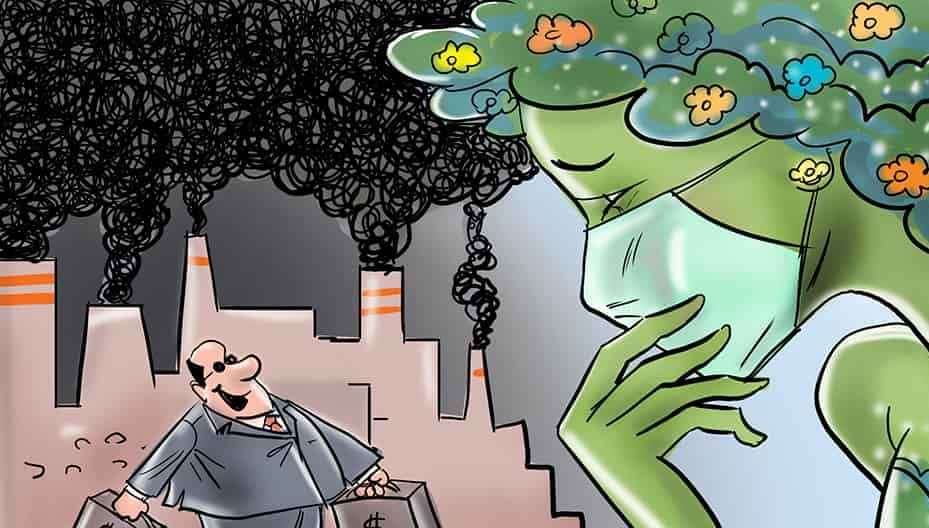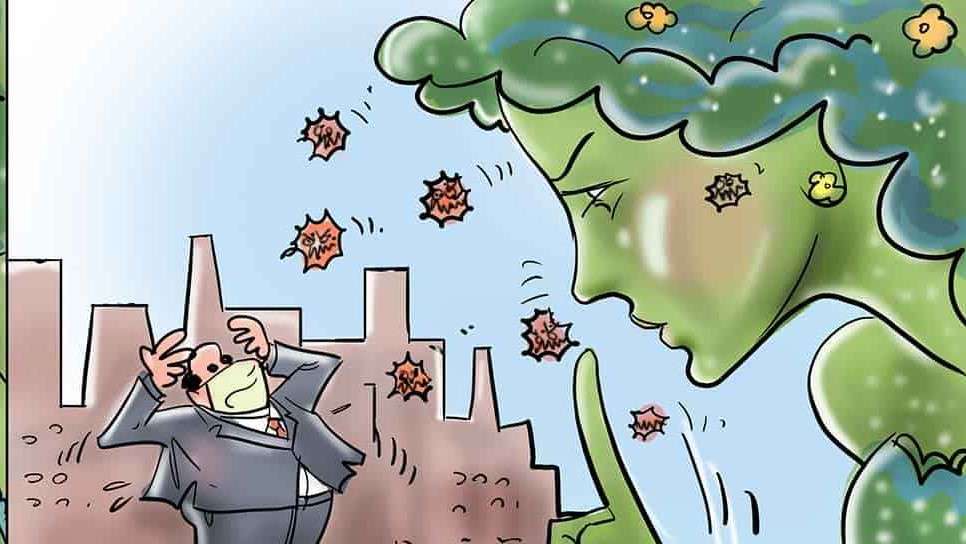
Mar 26 2020.
views 327There was a time when humans were in a rat race, trying to make ends meet, sticking to deadlines and ignoring life. There was no ‘Me’ time, no space for relationships and people started adjusting to a material world. Nature was hurt, exotic animals were sold for meat, trees were felled and the world was soon transforming into a bare land when one day, nature decided that it had reached an ultimatum. The result came in the form of ‘coronavirus’.

Coronavirus. A much-feared word today as many are unknowingly falling prey to this foreign virus that keeps multiplying in its host, slowly dragging its host to death. Claiming the lives of over 300,000 people worldwide, COVID-19 continues to haunt the lives of many, currently undergoing quarantine at improvised quarantine centres worldwide.
Clear canals in Venice
Although Italy’s death toll due to coronavirus has outstripped that of China, the environment seems to be returning to its former glory. The lakes of Venice, a city in Italy’s Veneto region have become clearer with multi-colored plant life and subaquatic species returning to their original habitats. Motorboats, cruise ships, and tourist boats have stopped their activities thus allowing waters to recover. Citizens in Venice believe that Venice should remain as it is for a while as the entire nation is currently devastated with the pandemic.

Drop in air pollution
Satellite images of major cities where the COVID-19 outbreak took place have shown drastic drops in air pollution. The reasons are mainly due to the suspension of activities in power plants and a reduction in vehicles on the road. Clearer skies were observed in China during the peak period of the virus outbreak apart from countries such as Italy and South Korea.
Improved air quality
In January 2020, Colombo’s Air Quality Index (AQI) stood at an unhealthy level of 159 but as of yesterday, the reading has come down to a moderate level of 89. At times, Colombo was covered in a thick smog and it was even suspected whether Delhi’s increasing air pollution levels caused a direct impact on our skies. However, a spike in vehicles in the city and industrial pollutants were direct contributors to the increase in air pollution.
‘Jumanji’ effect
Since the virus was suspected to have transferred to humans through animals, many were of the view that China should look at a permanent ban on wildlife meat. As nature reacted quite angrily to the way humans treated animals and nature as a whole, it now seems that nature is taking it easy. As people continue to stay indoors, wild animals such as deer, wild turkey, and raccoons were spotted on the streets in various countries including Japan.
In her comments, environmental architect and nature lover Sunela Jayawardena said that while the world has closed for us humans, the earth, air, and water are recovering and being returned to all the other species we grabbed it from. Since we, the human species forgot that we share this planet with many others, this seems a timely reminder in the only language we all understand.”
Hence this is a time to reflect on what we have really done to nature and how we could treat it better.
0 Comments